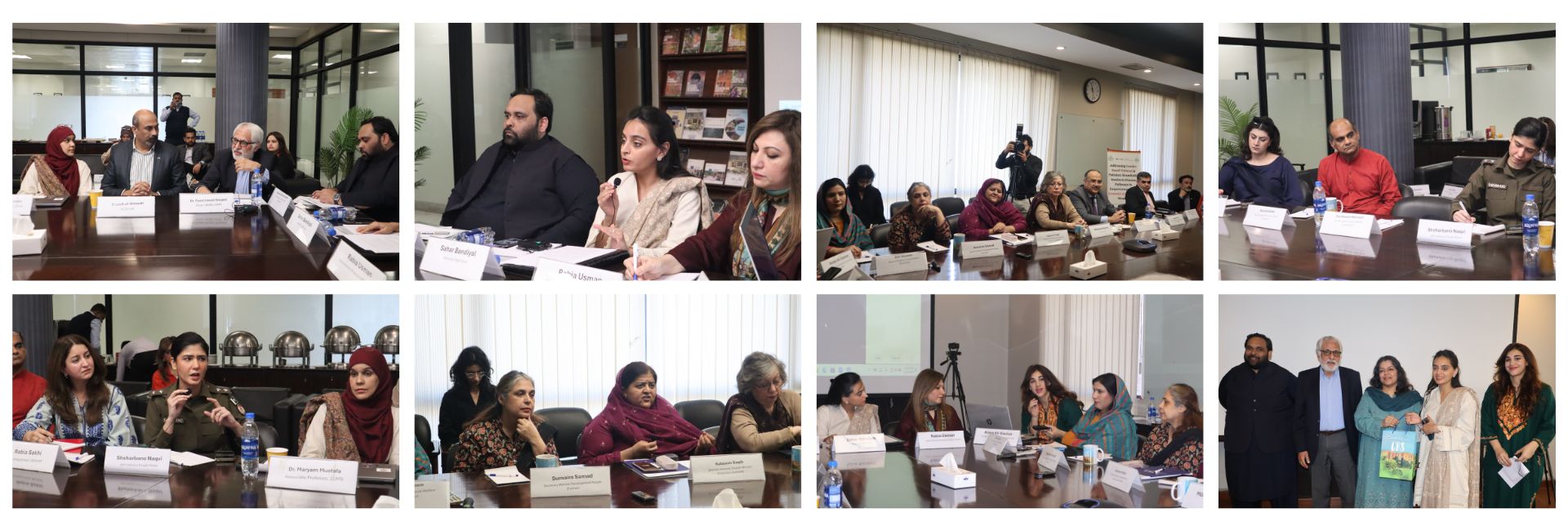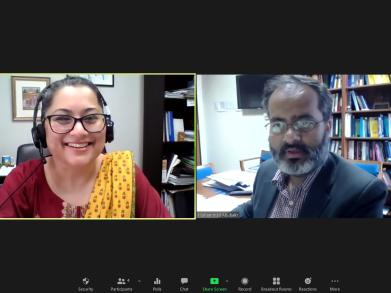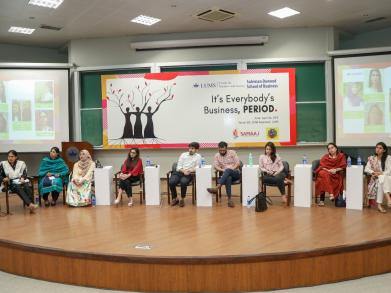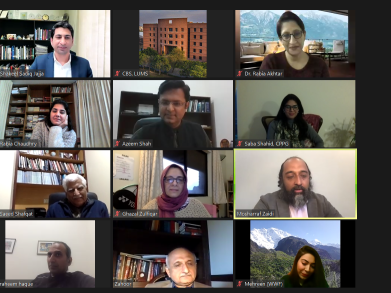Centre for Business and Society-LUMS partnered with Social Welfare & Bait-ul-Maal Department of Punjab, for a Roundtable Session to commemorate the 16-days of activism against Gender-Based Violence.
The session titled “Addressing Gender-Based Violence in Pakistan: Pathways to Empowerment and Economic Avenues for Women” was held on December 4, 2024, in the Suleman Dawood School of Business – LUMS. The policy Roundtable Session brought together a diverse group of experts and practitioners from legal, non-profit, government, civil services, and academia to foster a holistic dialogue. The session aimed to uncover the intersection of gender-based violence and women’s economic empowerment, addressing structural inequalities and proposing actionable pathways to create more inclusive frameworks across sectors.
The panel featured notable organisations and institutes such as the Social Welfare Department, British High Commission, State Bank of Pakistan, Bali Memorial Trust, Punjab Police, Jazz, Sapphire Retail, Kaarvan Crafts Foundation, Go Flour, Akhuwat, Shirkatgah & Punjab Development Skills Fund, among others.
The session began with a welcome note by Dr. Fazal Jawad Seyyed (Dean, Suleman Dawood School of Business – LUMS) who welcomed the participants and lauded the initiative of creating a cross-sectoral dialogue to combat gender-based violence and the crucial role of economic liberation towards protection of females in our community. This was followed by opening remarks from Mr. Khawaja Sikander Zeeshan (Director General, Social Welfare & Bait-ul-Maal Department, Punjab), who spoke about the initiatives undertaken by the department towards the social security of victims. He stressed the importance of digital media to create awareness among the public about the rights and frameworks in place for the protection of women.
Moderated by Sahar Bandiyal (Advocate, High Court and Faculty member at Shaikh Ahmad Hassan School of Law – LUMS), the roundtable discussions were enriched by multidisciplinary perspectives. Legal representatives emphasized the need for stronger enforcement mechanisms and accessible legal aid for survivors and victims. Non-profit leaders highlighted community-led initiatives that have proven effective in providing support and skill development opportunities to women. Government officials shared policy advancements and gaps, while civil service representatives underlined the importance of inter-agency collaboration in delivering impactful interventions. Academics provided evidence-based insights, grounding the dialogue in research and data to create sustainable solutions to economically empower women.
Key outcomes of the session included actionable recommendations such as integrating economic support into gender-based violence response frameworks, scaling grassroots-level empowerment and skill programs, and fostering public-private partnerships to enhance resource mobilization. Participants also called for strengthening cross-sector collaboration to ensure that policies are both survivor-centered and rooted in gender equity!
















